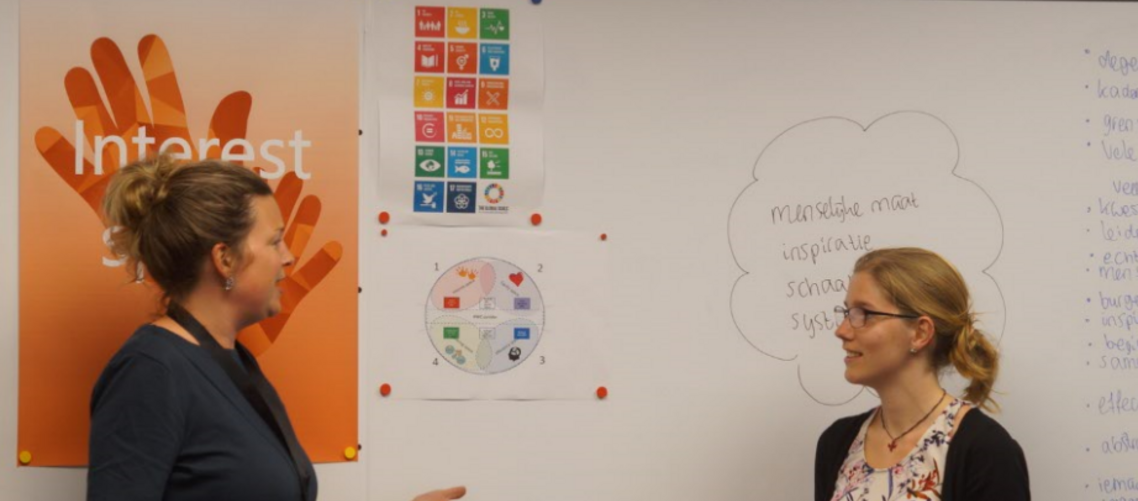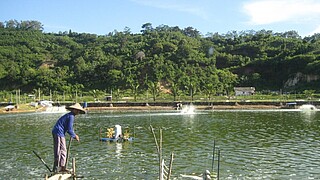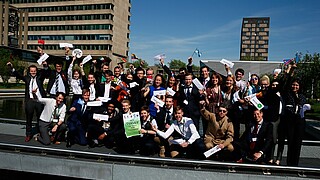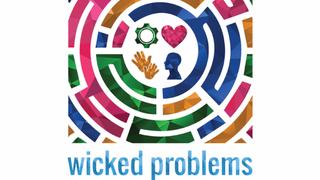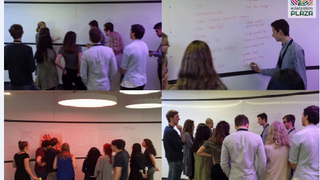The meeting in May was the second of six planned sessions to discuss SDGs, called Wicked Problems Plazas (WPPs), at the New World Campus in The Hague.
Each meeting involves 15 invited stakeholders from various sectors of business, constituting a diverse group of people. Each session has an accompanying public event on the same topic; a movie, a presentation or a public group discussion. The programme has been devised by the PrC, the New World Campus and the Netherlands Enterprise Agency (RVO) programme Duurzaam Door.
Making The Hague sustainable
The meeting on May 19 was co-organised by Publieke Versnellers, a Dutch organisation that aims to bring about societal innovation to improve quality of life. Other participants in the WPP event were from businesses, NGOs and government, they were practitioners and academics, sustainability experts and learners.
Participants shared their views by bringing an object to the meeting that symbolized their thoughts or feelings on the matter. Dreams were shared, and existing attempts at increasing sustainability were critically appraised. In the discussions, participants were able to use their unique expertise to come up with new and original ideas. New networks were formed as participants exchanged business cards and agreed to further explore options for collaboration.
The format of the Wicked Problems Plaza takes the stakeholders through a fixed number of steps in order to turn abstract problems into real solutions. They may not solve the problem with one session, sometimes the issues are just too complicated, but they will find new clues and make connections to work with in the community.
At the close of the session, the city stakeholders return to the question with which they started the day; are they closer to a climate-neutral city in 2040? It would be naïve to think the answer was clear, and there is still plenty of thinking to be done, but a seed has been planted, and a new network of people who can make it grow has been formed. That’s a result.
A more detailed report of this WPP can be found on the OneWorld website (in Dutch).
Important diversity
Diversity is important to the Wicked Problems Plaza concept, a methodology proposed by RSM’s Professor Rob van Tulder. The central idea is that in order to solve wicked problems – those problems that are difficult or impossible to solve because of incomplete, contradictory, and changing requirements – what’s needed is innovative solutions generated by the collaboration between a large diversity of stakeholders.
Other Wicked Problems sessions can be found on the New World Campus website (in Dutch).
